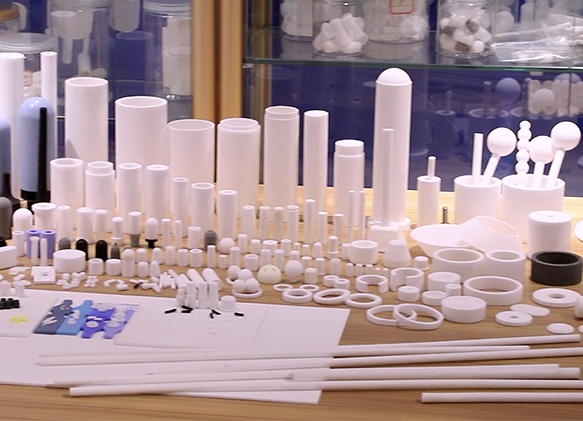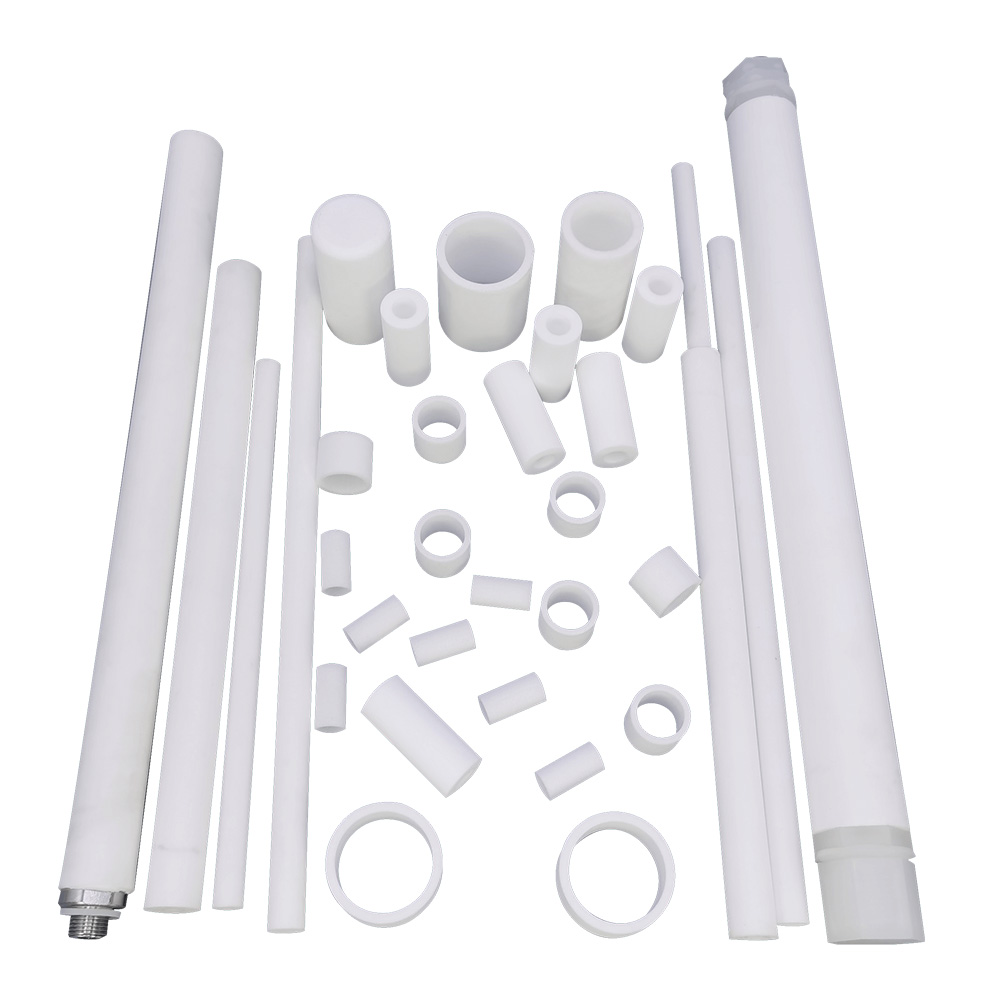Sintered Plastic Filters: A Comprehensive Guide
This blog post provides a comprehensive overview of sintered plastic filters, including their construction, advantages, applications, and selection criteria. We discuss the various types of sintered plastic filters, their manufacturing process, and their role in industries such as chemical processing, food and beverage production, and environmental filtration. Additionally, we offer valuable insights on choosing the right sintered plastic filter for your specific needs.

Introduction
Sintered plastic filter have become an indispensable component in various industries due to their exceptional performance and versatility. In this comprehensive guide, we will delve into the intricacies of sintered plastic filters, exploring their construction, advantages, applications, and how to select the right filter for your specific needs.
Understanding Sintered Plastic Filters
Sintered plastic filters are porous materials created through a process called sintering, where plastic particles are heated and fused together to form a solid structure with interconnected pores. This unique construction allows for precise control of pore size, enabling effective filtration of particles and contaminants.
How Sintered Plastic Filters Are Made
The manufacturing process of sintered plastic filters involves several key steps:
- Particle Selection: High-quality plastic particles are chosen based on desired properties such as chemical resistance, temperature tolerance, and mechanical strength.
- Mixing and Blending: The selected particles are mixed and blended to achieve the desired pore size distribution and other characteristics.
- Molding: The mixture is molded into the desired shape, such as discs, cylinders, or cartridges.
- Sintering: The molded components are heated in a controlled environment to cause the particles to fuse together and form a porous structure.
Types of Sintered Plastic Filters

Sintered plastic filters are available in a wide variety of types, each with its own unique characteristics and applications:
- Depth Filters: These filters have a deep bed of porous material that captures particles throughout their depth.
- Surface Filters: These filters have a relatively thin porous layer that traps particles on the surface.
- Membrane Filters: These filters have a very fine pore size, allowing for the removal of extremely small particles.
Advantages of Sintered Plastic Filters
Sintered plastic filters offer numerous advantages that make them a popular choice in many industries:
- Durability and Longevity: Sintered plastic filters are highly resistant to corrosion, abrasion, and chemical attack, ensuring a long service life.
- High Filtration Efficiency: The precise control of pore size in sintered plastic filters allows for effective removal of contaminants, even at very low particle concentrations.
- Chemical Resistance: Sintered plastic filters are compatible with a wide range of chemicals and solvents, making them suitable for use in harsh environments.
- Lightweight and Easy to Handle: Sintered plastic filters are generally lightweight and easy to handle, reducing installation and maintenance costs.
Applications of Sintered Plastic Filters
Sintered plastic filters are used in a wide range of applications, including:
- Industrial Filtration: Chemical processing, food and beverage production, pharmaceutical manufacturing, oil and gas industry.
- Environmental Filtration: Water treatment, air purification.
- Medical and Laboratory Applications: Sterilization and filtration of fluids, diagnostic testing.
Choosing the Right Sintered Plastic Filter
When selecting a sintered plastic filter, it is important to consider the following factors:
- Filtration Requirements: What type and size of particles need to be removed?
- Chemical Compatibility: Will the filter be exposed to any chemicals or solvents?
- Operating Conditions: What are the temperature, pressure, and flow rate conditions?
- Cost-Effectiveness: What is the desired balance between performance and cost?
By carefully considering these factors, you can choose the sintered plastic filter that best meets your specific needs.
Conclusion
Sintered plastic filters are versatile and high-performance filtration solutions that offer numerous benefits in a wide range of industries. By understanding their construction, advantages, applications, and selection criteria, you can effectively utilize sintered plastic filters to improve the quality and efficiency of your filtration processes.
If you are looking for reliable and high-quality sintered plastic filters, Lvyuan is your trusted partner. With our expertise and commitment to customer satisfaction, we can provide you with the ideal filtration solutions for your specific needs. Contact us today to learn more about our product offerings and discuss your filtration requirements.

What is Sintered Metal Filter? Complete Guide by Lvyuan

Sintered PTFE Filters: Advanced Filtration for Demanding Environments

Metal Sintered Filters: Precision Filtering to Drive Industrial Upgrading

Choosing Sintered Filters: An Overview for Industrial Applications

What is a Sintered Metal Filter Disc? A Comprehensive Guide

What Are Sintered Metal Filters and How Do They Work?
Sintered Titanium Filters
What are Sintered Titanium Filters?
Sintered titanium filters are porous metal components created through a sintering process, designed to provide efficient filtration in various applications.
For products
What applications are suitable for sintered metal filters?
Sintered metal filters are versatile and find applications in various industries such as pharmaceuticals, petrochemicals, food and beverage, water treatment, and more. They are commonly used for gas and liquid filtration.
For company
When is Lvyuan founded?
Lvyuan was established on October 12, 2009
Metal mesh filters
What are the key advantages of sintered wire mesh filter?
• High Strength: The sintered wire mesh filter exhibits excellent mechanical strength.
• Uniform Porosity: The sintering process creates a uniform pore structure for efficient filtration.
• Temperature Resistance: Suitable for applications with high temperatures.
• Easy to Clean: Can be cleaned and reused multiple times.
• Chemical Resistance: Resistant to corrosion and chemical exposure.
Stainless Steel Pleated Filter Cartridges
What is a Stainless Steel Pleated Filter Cartridge?
A Stainless Steel Pleated Filter Cartridge is a filtration device with a pleated design, made from high-quality stainless steel (SS 304 or SS 316L). It is used for efficient particle removal in various industrial applications.

Sintered powder metal filters
Sintered powder metal filters are crafted from compressed and sintered metal powders, forming a porous structure. Porosity: 28%-50% Permeability: 0.02-20L/cm²minPa Pressure Resistance: 0.5Mpa Temperature Resistance: Less than 280℃

Bag filter housing
Bag filter housings are essential components in industrial filtration systems, designed to remove contaminants from liquids. To enhance the functionality and efficiency of bag filter housings, various features can be incorporated.

Sintered wire mesh filter
Benefit from outstanding high-pressure resistance and consistent filtration efficiency with Lvyuan's sintered metal mesh. Our sintered wire mesh finds versatile applications in diffuser screens, centrifuges, breather vents, fluidized beds, chromatography, polymer processing, petrochemical industries, hydraulic filters, and more.

Stainless steel multi cartridge filter housing
Discover unparalleled filtration efficiency with our Stainless Steel Multi Cartridge Filter Housing – a testament to precision engineering and reliability.

Sanitary filter housing
This filter housing will allow you to filter large volumes of nanoemulsion with ease. Sanitary vent and drain valves permit easy venting, draining, sampling, or integrity testing operations. The new cartridge locking design features additional cut-outs for traditional half-moon portions of the Code 7 bayonet locks, enhancing clean ability and drain ability.

stainless steel filter water
Lvyuan’s sintered stainless steel filter stands as a pivotal filtration element crafted through a meticulous sintering process, with stainless steel serving as the core material.

Stainless steel pleated filter cartridge
Lvyuan Stainless Steel Pleat Filter Cartridge constructed from high-quality SS 304 or SS 316L material, this filter exhibits exceptional resistance to high temperatures and rust.

Stainless Steel Duplex filter housing
As the manufacturer, we offer a comprehensive range of Duplex Filter Housings designed to provide efficient and reliable filtration solutions for various industrial applications.
© 2024 Lvyuan All Rights Reserved. | Privacy policy • Terms and conditions
